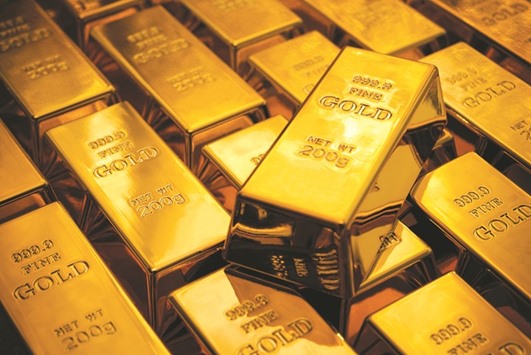Islamic finance experts have developed new rules for gold transactions, they said on Monday, potentially opening the way for Islamic institutions to trade gold and silver much more actively. Gold transactions must be fully backed by physical metal and settled on the same day, the developers of the new guidance said, to observe Islam’s distinction between real economic activity and speculation.
Traditionally, gold has played a very minor role in Islamic finance and there has been little activity beyond spot trading, partly because of uncertainty over what is religiously permissible. The new standards, which also apply to silver, could help to change this.
The Bahrain-based Accounting and Auditing Organisation for Islamic Financial Institutions (AAOIFI) spent a year working out the new rules on gold trading and agreed them last month.
AAOIFI developed its guidelines with the World Gold Council (WGC), a London-based market development body, to clarify existing Islamic rulings on bullion and make it easier to conduct complex transactions. The guidelines will help to increase acceptance of gold products among Islamic investors while giving Islamic banks new liquidity-management tools, said Hamed Hassan Merah, secretary-general of AAOIFI, whose standards are followed in whole or in part by Shariah-compliant banks around the world. AAOIFI also requires same-day settlement of trades, Merah told Reuters.
Many conventional gold products are settled two days after the trade; by eliminating the delay, same-day settlement means less risk but can be less convenient for investors who need to have cash on hand.
“A number of providers have already been developing products in anticipation of the standard,” said Natalie Dempster, managing director of central banks and public policy at the WGC. The standards permit buying gold through agents, which will allow for exchange-traded funds (ETFs) and online retail platforms, Dempster said.
There has been interest in products among Islamic banks in the UAE and Turkey, she added.
Uncertainty about how gold can be used in Islamic finance has slowed both product development and investor demand. Malaysia’s capital market regulator issued guidance for Islamic ETFs based on gold and silver in 2014, but no such products have been launched there.
In 2009, the WGC and the Dubai Multi Commodities Centre launched an Islamic gold exchange-traded product that was eventually delisted. Now Dublin-based gold dealer GoldCore plans to offer a Shariah-gold trading platform for use by Islamic financial institutions in the first quarter of 2017. It is designed to offer segregated gold accounts with the option of physical delivery, the firm said in a statement.
Dubai-based Konooz Capital plans to issue gold-backed sukuk, or Islamic bonds, through a $5bn programme it originally registered in 2014 and again in August this year, according to regulatory filings. The proposed programme uses a structure known as wakala, where one party acts as the manager of a portfolio of assets and charges a management fee.
Last month, the Jeddah-based Islamic Development Bank and Turkey’s Borsa Istanbul said they planned a gold trading platform for use by majority-Muslim countries. The AAOIFI standard could also affect existing gold products by widening their investor bases, Dempster said.
Islamic banks including Kuwait Finance House and Malaysia’s Bank Muamalat already offer gold investment products, while Toronto-based Bullion Management Group has two funds which have been accredited as Shariah-compliant since 2009. In 2008, London-based ETF Securities launched a range of Shariah-compliant products based on physical platinum, palladium, silver and gold.
ETF Securities said the new standards were unlikely to change the price of gold and that it would take time for markets in new products to develop.
AAOIFI also plans to conduct workshops for gold merchants in the Middle East to help clarify how to implement the standards in their daily operations, Merah said.

Traditionally, gold has played a very minor role in Islamic finance and there has been little activity beyond spot trading, partly because of uncertainty over what is religiously permissible. The new standards, which also apply to silver, could help to change this
